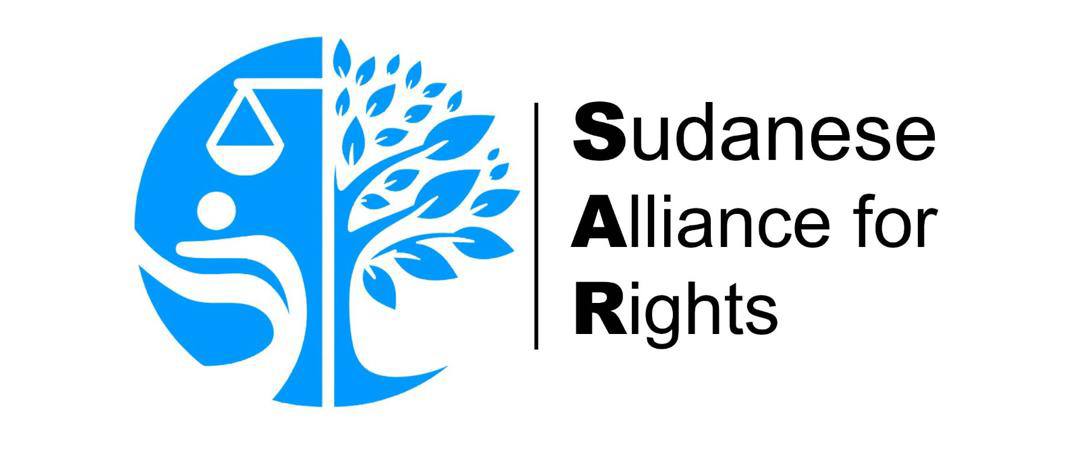Khartoum- SAR
The humanitarian crisis in South Khartoum, also known as (Khartoum’s South Belt) has dramatically deteriorated, with the area facing critical shortages of food and essential goods for more than a month, while community kitchens that once supported the Azhari neighborhood have been shut down due to the halt in donor funding, leaving no backup solutions. The ongoing conflict between the warring factions near Khartoum—particularly in Bahri city, the Army’s General Command in central Khartoum, and the eastern suburbs—has further exacerbated the situation.
Psychological warfare and rumors spread by both parties to the conflict have further strained the area’s humanitarian conditions. Consequently, for the eighth consecutive day, waves of displacement have continued to sweep through neighborhoods including East Nile, Kafouri, Al-Manshiya, Al-Azhari, Al-Nahda, Soba, and other parts of South Khartoum. This mass displacement has intensified the already dire shortage of services, with basic supplies and long queues at bakeries and mills becoming widespread.
The health situation in the area has continued to deteriorate on a daily basis, resulting in the collapse of the healthcare. For the third consecutive week, Bashair Hospital remains closed, and outpatient clinics now operate only during the morning hours. The scarcity of medicines is adding to the crisis.
Bashair Hospital, the only operational healthcare facility in South Khartoum, has been running at reduced capacity after medical staff and workers went on strike following a shooting incident in the emergency department, allegedly involving a member of the Rapid Support Forces (RSF). Once a provider of free medical care to the local community, the hospital is now limited to offering only dialysis and therapeutic nutrition services for children, pregnant women, and breastfeeding mothers.
The situation at Bashair Hospital has worsened further following the withdrawal of Médecins Sans Frontières (MSF), widely recognized as Doctors Without Borders, leaving the facility in a deplorable condition. The majority of medical staff have emigrated, and the hospital’s drug supply has sharply dwindled. The crisis deepened earlier this week when the only ambulance serving the hospital, along with its backup generator, were stolen. Supplies from the South Khartoum Emergency Room, housed in one of the hospital’s buildings, were also looted. These incidents are direct consequences of the growing insecurity in the area
Markets in the area have been forced to close due to widespread looting, theft, and abductions for ransom by the RSF, along with the unlawful killing of civilians and the arrest of several emergency room members on charges of collaboration and espionage. Follow-up reports indicate that these arrests have led to the shutdown of all community kitchens, locally known as Takaya, further exacerbating the crisis for residents who heavily relied on the Takaya for survival.
Follow-up reports from the Sudanese Alliance for Rights (SAR) have revealed that most of the young volunteers working at the South Khartoum Emergency Room have fled the capital, following threats from both warring factions and rumors circulating in the media that they would be targeted by army-affiliated brigades on suspicion of collaborating with the RSF. These threats and rumors have also sparked panic among the citizens, resulting in the closure of markets and a severe disruption of daily life.
The alliance also notes that most traders, filled with anxiety and panic, have withdrawn large quantities of their goods from both the main and sub-markets serving the South Khartoum area, including Khartoum Central Market, Goro, the New and Old (6), Laqlaq, Al-Sahrij, Al-Bagala, Al-Ashaeen, and Abuja markets. This is compounded by the complete closure of food supply routes from northern Sudan, the River Nile region, and eastern Sudan into the capital, Khartoum, by the army.
It seems that the emerging reality in Khartoum has led to severe shortages of essential food items that South Khartoum residents rely on for their daily sustenance, including flour, sugar, rice, lentils, and pasta, while some legumes from the Gezira and Sinnar regions, such as lentils, chickpeas, and fava beans, are still available. However, the available stock of these items is now confined to the warehouses of the traders, who have taken advantage of the situation by sharply raising the prices, making these goods increasingly out of reach for low-income citizens.
The SAR follow-ups have revealed that basic services in the area have ground to a halt. Power outages have persisted for nearly a year, and water scarcity has reached crisis levels, forcing residents to pay up to 10,000 Sudanese pounds for a single barrel of water. The bread shortage has worsened significantly, with most bakeries closing due to a shortage of wheat flour, including Al-Khabbaz, Seen, and Solara brands. The remaining flour supplies have become too expensive for many residents to afford.
Communication and internet networks have also been down for over a year, forcing residents to rely heavily on Starlink for connectivity, despite the high activation costs they must pay from their daily earnings. Recently, however, most Starlink networks have stopped working due to the ongoing developments, adding to the shortage that is sweeping across the area from all sides.
In December 2024, the first shipment of humanitarian aid entered the capital, Khartoum, marking a significant milestone for the area. The delivery was supported by the World Food Programme (WFP) in coordination with the Khartoum State Emergency Room. The aid was distributed through the established base emergency rooms via their usual operational structure, including the Jabal Awliya and the South Khartoum Emergency Room, which managed the distribution across its various sectors.
The primary goal of the humanitarian aid was to provide food and essential supplies to the war-affected population in areas controlled by the RSF. This assistance offered much-needed relief to the residents of South Khartoum, who had hoped for continued, regular shipments. However, their hopes were dashed after more than a month passed without further deliveries. With no additional aid reaching the region, the humanitarian situation has quickly deteriorated, and the area now faces the growing threat of a potential disaster.

